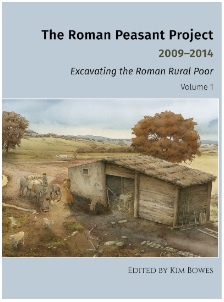- HOMEPAGE
- STAFF
- RESEARCH
- Laboratory Project
- 2020 FAR- DSV
- 2020 OLEA project
- 2016-2019 Successo Terra Project
- 2015-2017 SELCE-SELvatici CEreali: progetto e report
- 2010-2011 PICAR project- Cultural landscape and human Impact in Circum mediterranean countries
- 2007-2013 Plants and Culture: seeds of the cultural heritage of Europe
- 2006 The Archaeology of Crop Fields and Gardens
- Archaeobotany Team Leader
- Sito preistorico di Colombare di Negrar di Valpolicella (VR)
- nEU-Med project: studying and understanding the changes in Europe during the 9th-12th century
- Project: “The Villa Romana del Casale – Sicily: the wine of Polyphemus project”
- Metaponto project
- The Roman Peasant Project
- Philosophiana
- Project: The Villa Romana del Casale - Sicily: the archaeobotanical research convention
- Archaeobotany of Italian-Libyan Archaeological Mission in the Acacus in the Messak
- Villaggio protostorico di San Vincenzo a Stromboli
- Terramara di Montale
- Collaboration Project
- PhD project
- Natural Traces in forensic investigations - how pollen imprints can solve crime
- Floristic biodiversity and bee products for a regional Mellissopalynological characterization
- From pollen morphology to past and present flora composition: harmonising pollen taxonomy and plant species diversity across Italian biodiversity hots
- A palynological approach for assessing long-term plant biodiversity changes under climate and human impacts in Italian high-naturalistic-value areas
- From archeopalynology to aeropalynolgy: a model for urban green development study (the case-study of the city of Reggio Emilia)
- Plant biodiversity and ecosystem safeguard: Learn from the past to plan the future
- Climate change and human impact in a long-term perspective: palynology of Middle-Late Holocene deposits in the Po Plain
- Reconstruction of the natural and cultural Holocene landscape along a transect plain-mountain of the province of Modena (Emilia Romagna, Italy)
- Video talks
- Laboratory Project
- TEACHING
- CONGRESS
- REFERENCES
- Pubblicazione PLK su Scientific Reports Nature 2025
- Pubblicazione BRAIN Scientific Data Nature 2024
- Pubblicazioni su Nature Ecology & Evolution 2022, Nature 2019 e Nature Plants 2018 e 2016
- Pubblicazione su PNAS 2021
- Capitoli in volumi in open access
- Springer book
- Special Issues
- 2024
- 2023
- 2022
- 2021
- 2020
- 2019
- 2018
- 2017
- 2016
- 2015
- 2014
- 2013
- 2012
- 2011
- 2010
- ANTE 2010
- HISTORICAL NEWS
- BRAIN
- SCIENCE and PEOPLE
- Dissemination
- 2022 - 21-22 ottobre Cereali & Uomo: una storia intrecciata raccontata dall'Archeobotanica
- 2020 - 29 mag Seminario studenti Uninsubria tramite meet
- 2019 - 23 nov Conferenza Archeologia funeraria e tecnologie diagnostiche innovative
- 2019 - 20 nov Incontro formativo per le guide Parco Archeologico Terramara Montale
- 2019 - 23 mag Archeologi: quale lavoro?
- 2019 - 19 mag Seminario studenti Uninsubria presso UNIMORE
- 2019 - 22 marzo Conferenza "Il Giardino delle Duchesse"
- 2019-2016 Incontri e Laboratori al Parco Archeologico Terramara di Montale
- 2018 - 8 e 12 ott Seminari di aggiormamento per insegnanti su Palinologia e cambiamenti climatici
- 2018 - 2017 Corso di introduzione alla Melissopalinologia
- 2017-2018 Mostra "Mutina Splendidissima. La città romana e la sua eredità"
- 2015 Exhibition 'Piante e Africa. L'erbario Chiovenda dell'Orto Botanico di Modena' (23-28 giugno)
- 2014 Arte e Scienza. Le scienze per i Beni Culturali (12-13 dicembre)
- 2013 Research Day (22marzo)
- 2011 Euroflora
- 2008-2011 Mostra PaCE
- Science newspaper
- Multiporate Poaceae pollen as environmental stress indicator in Holocene Sahara
- Rassegna stampa Lake Ohrid
- Rassegna stampa wild cereal in Holocene Sahara
- Rassegna stampa Green Sahara soup
- Archaeobotany and the Terramara Archaeological Park of Montale (Emilia-Romagna, Northern Italy): Experiences of Public Education
- Il Bosco Storico di Nonantola: uno studio geologico, botanico e archeologico.
- Il melograno tra filo e realtà
- L'insediamento medioevale di Santo Stefano a Novi di Modena
- Guida alla Mostra "Mutina splendidissima. La città romana e la sua eredità"
- Guida del Museo delle Mummie di Roccapelago
- Interview with AM Mercuri
- Interview with A Florenzano
- Dissemination


